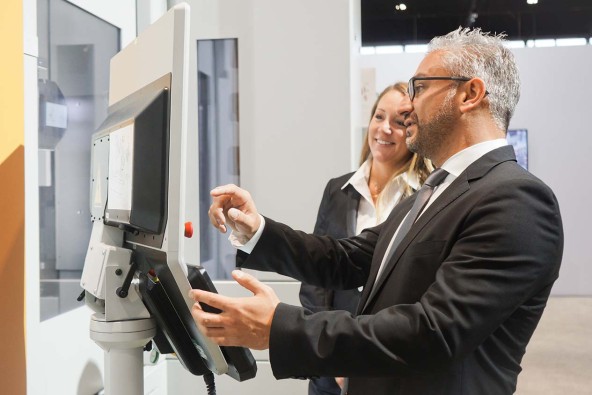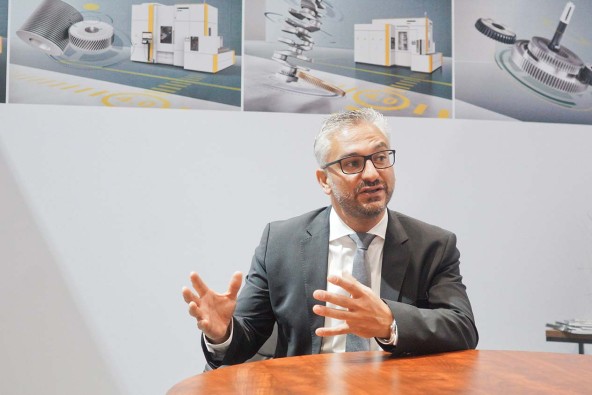The USA Series | Federico Quesada, Regional Sales Manager
From Costa Rica via Germany to the USA. Originally from Costa Rica, Federico Quesada has been a Regional Sales Manager at Liebherr since 2020. Having studied mechanical engineering at RTWH Aachen, he then spent more than 10 years working in gear technology – specifically in Application Technology and Sales.
We asked him what his job as Regional Sales Manager in the USA and Mexico entails and what challenges his customers face, and spoke about the effects of cultural differences.

What are your responsibilities as a Regional Sales Manager?
As Regional Sales Manager, I’m responsible for sales of gear cutting machines in the Midwestern US. My region also covers Mexico, which is great because I’m a native Spanish speaker. My customers come from a wide variety of industries. The first step, of course, is to establish contact. I believe the most important thing is to meet the customer eye-to-eye, find out what challenges they’re facing and then offer them the best machine for what they need and which helps them overcome their challenges.
What are the most prominent challenges in your market at the moment, and how can you help customers overcome them?
In the USA and Mexico, it’s crucial that the machine is easy to operate. Because of the apprenticeship system in Germany, personnel are generally better trained. The operators have the technical background and can handle the machines. In the USA and especially in Mexico, this isn’t always the case. The market has to contend with huge staff turnover – someone operating the machine today might be working in a completely different industry the following month, and vice versa.
That’s why the machines have to be easy to operate and automated to the greatest possible extent. We have to keep that in mind when designing the machines. This means easy operation and automation wherever possible in order to avoid errors and ensure production with minimum personnel.

What has been your personal highlight so far during your time at Liebherr?
We have a customer in Mexico who only used to have machines from our competitors. There had been contact with Liebherr for some time, but it had never ended up with a sale. I think there were several obstacles, and one of them was certainly the language. When I took over the market, it was an advantage of course that I’m a native speaker. I was very proud when the customer finally bought two of our machines and is still very happy with them.
So your language skills and familiarity with Latin American culture helps a lot when dealing with customers from Mexico?
Absolutely. The language is one thing, of course. If you can communicate in your native language, you can make sure that nothing gets lost in translation. But what’s perhaps even more important is a feeling for the subtle cultural differences. Latin Americans in particular attach great importance to interpersonal contacts in addition to the technical aspects. You have to respond to this. It often takes several months from the first contact to acceptance of the machine, and you spend a lot of time with the customer – you simply have to build up a good relationship.
It’s also something that I particularly enjoy. I get to know all kinds of people and build relationships and sometimes even friendships with our customers.
What makes working at Liebherr special for you?
The people. We have a fantastic team and can rely on each other. We get along very well, both at work and outside of work. A good atmosphere in the team and in the office is important to stay motivated at work.
I also find it remarkable how involved the Liebherr family is in the company. They make their presence felt and it’s very clear that they care about the wellbeing of the workforce. You’re an employee, but also part of the Liebherr family.

